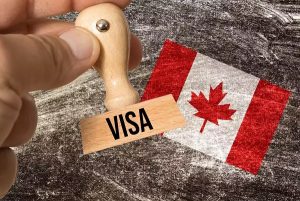The burden of student loan debt can be overwhelming for many individuals, leading to concerns about the potential consequences of not being able to make timely repayments. One common misconception is that failing to pay student loans could land you in jail. In this blog post, we will debunk this myth and provide a clear understanding of the consequences and options available to borrowers who are struggling to repay their student loans.
Understanding The Consequences
It is essential to recognize that while defaulting on student loans can have serious financial ramifications, such as damaged credit and collection efforts, it does not typically lead to imprisonment. Student loan debt is considered a civil matter, not a criminal offense. Unlike failing to pay child support or evading taxes, defaulting on student loans does not carry the risk of criminal charges or jail time.
Collection Efforts And Credit Impact
When borrowers fail to make payments on their student loans, they may experience various collection efforts. These can include contacting the borrower to discuss repayment options, reporting the delinquency to credit bureaus, withholding tax refunds or garnishing wages through legal processes, and pursuing legal action to obtain a judgment against the borrower.
The Impact On Credit
Defaulting on student loans can have a significant impact on your credit score. Late or missed payments can be reported to credit bureaus, resulting in a lower credit score. A lower credit score can affect your ability to secure future loans, obtain housing, or even find employment. It is crucial to communicate with your loan servicer if you are facing financial hardship to explore alternative repayment options and avoid default.
Options For Borrowers In Financial Hardship
If you find yourself unable to make your student loan payments, there are several options available to help manage your debt and avoid default:
- Income-Driven Repayment Plans: Federal student loans offer income-driven repayment plans that adjust your monthly payment based on your income and family size. These plans can help make your payments more manageable, even if your income is limited.
- Loan Deferment or Forbearance: If you are facing temporary financial hardship, you may qualify for loan deferment or forbearance. These options allow you to temporarily suspend or reduce your loan payments. It is essential to understand the terms and potential consequences associated with deferment or forbearance, such as interest capitalization.
- Loan Consolidation or Refinancing: Consolidating your loans or refinancing with a private lender can potentially help lower your monthly payments or secure more favorable terms. However, it is crucial to carefully evaluate the terms and conditions of consolidation or refinancing before proceeding.
- Seek Assistance and Guidance: If you are struggling with your student loan payments, reach out to your loan servicer to discuss your situation. They may be able to provide guidance, information about available options, and alternative repayment plans that suit your financial circumstances.
Additional Information
The fear of going to jail for not paying student loans is a common misconception. While defaulting on student loans can have serious financial repercussions, it is not a criminal offense and does not typically lead to imprisonment. Understanding the consequences, exploring available options, and maintaining open communication with your loan servicer are crucial steps in managing student loan debt.
If you are experiencing financial hardship, take proactive measures to address your situation. By exploring alternative repayment plans, deferment, forbearance, loan consolidation, or refinancing options, you can work towards finding a solution that eases the burden and helps you regain financial stability.
Remember, it is important to stay informed, seek assistance when needed, and take proactive steps to manage your student loans responsibly. With diligence and strategic planning, you can navigate your student loan obligations and work towards a brighter financial future.
ALSO READ: A.M Money Private Student Loans






1 thought on “Can You Go To Jail For Not Paying Student Loans?”